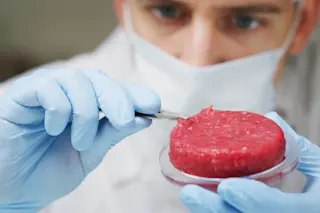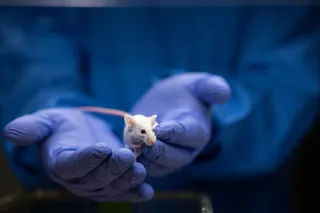In August 2013, Mark Post of Maastricht University unveiled to an events hall the world’s first kill-free beef patty. Through a laborious and bogglingly expensive process, Post and his team successfully grew real meat in a lab from a biopsy all the way up to an edible burger.
But the response from the public was mostly, “yuck.” At the time, cultured meat seemed to irk most on a fundamental level.
Today, while there is still some aversion to cultured meat, domestic support for this technology is steadily growing. A recent poll found that two thirds (67 percent) of Americans would be willing to try cultured meat grown in a lab setting. This increasing support comes at a time of considerable food and environmental insecurity, combined with rising global economic challenges, meaning that cheaper, more accessible and more environmentally friendly food sources are in dire need. So, why the aversion?
Paul ...














